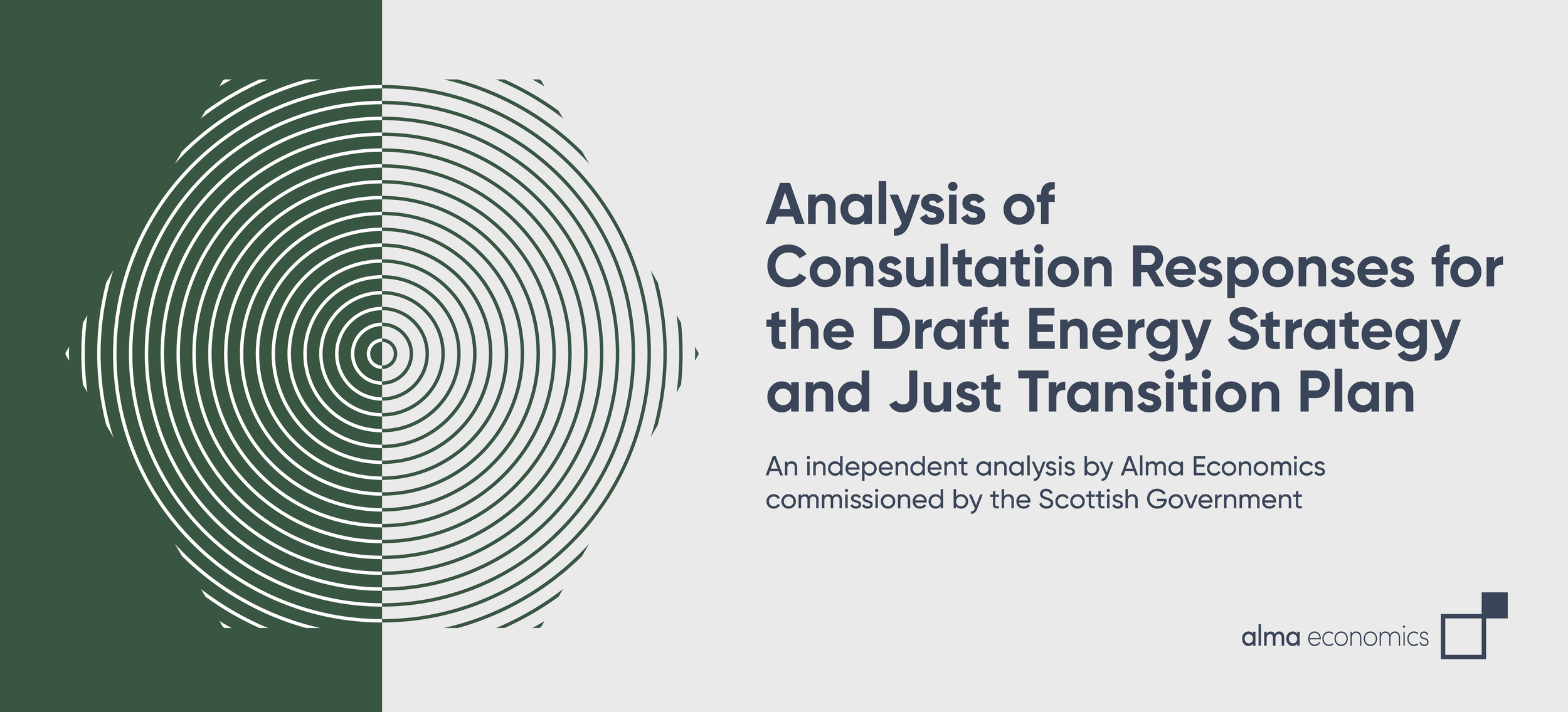Consulting the public on Scotland's draft Energy Strategy and Just Transition plan
To achieve its climate change ambitions, Scotland must undergo a transformation in how it generates, distributes, and uses energy. This endeavour offers substantial opportunities; for instance, the harnessing of Scotland’s abundant renewable energy resources can benefit the nation's citizens, workforce, communities, and economy.
The Scottish Government has set out a vision for this undertaking in its draft Energy Strategy and Just Transition Plan. This plan includes a route map of ambitions and actions that, coupled with detailed sectoral plans and the forthcoming Climate Change Plan, will guide decision making and policy over the course of this decade.
In order to engage the public in the process of designing Scotland’s energy transition, the Scottish Government held a consultation on the plan. The government sought views on its vision and the actions it is taking to enable the transition to an affordable, resilient, and clean energy system. A further goal was to understand how the social and economic benefits of the energy transition can be maximised.
Alma Economics was commissioned by the Scottish Government to analyse and report on the main themes emerging from the responses to the public consultation. The consultation included open-format questions with free-text fields, allowing respondents to provide insights without text length limitations. The Scottish Government hosted the consultation on its Citizen Space portal, while responses submitted via email or post were also accepted. In total, 1,598 responses were received.
At the outset of the consultation analysis, our research team consolidated all the responses into a unified database. The team carefully examined them for offensive, abusive, or explicitly vulgar content, and screened them for duplicate responses or coordinated campaigns, identifying 1,233 nearly identical responses associated with a single organised campaign. To ensure a balanced thematic analysis, these duplicate responses were summarised in a separate section of the report and were counted only once in the theme rankings presented in the question-by-question summary.
Some responses received via email or post did not adhere to the prescribed format or did not reference specific recommendations. Insights gleaned from these non-standard responses were compiled separately in a dedicated section of the report. While these responses may not be precisely reflected in quantitative analysis breakdowns, the main emerging topics are included in the executive summary and the summary of overarching themes.
All responses to the open-text questions were read in full by our team of researchers, with thematic analysis of each response being conducted to capture the main opinions expressed by respondents in overarching themes and to understand the reasoning behind answers.
Alma Economics’ analysis of the public’s input on the draft Energy Strategy and Just Transition Plan will help ensure that government policies are well-informed and aligned with the needs and aspirations of the people. This transparency and engagement is key to achieving an effective and inclusive shift towards affordable, resilient, and clean energy systems, benefiting current and future generations of Scotland.
You can read our full report here.

